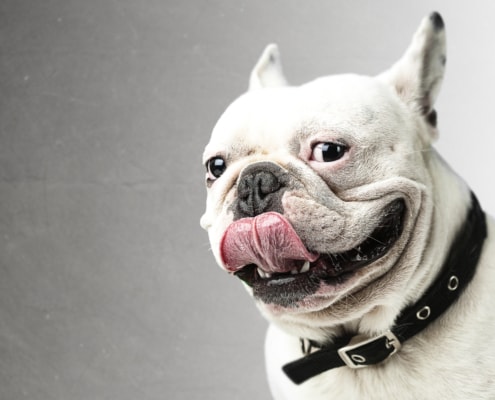Who gets the family dog in divorce?

Will deciding custody of your dog be part of your divorce? As August’s National Dog Month puts pooches in the spotlight, let’s take a look at how the courts determine ownership of dogs and other pets in divorce.
In New Jersey, dogs are property of “special subjective value”
Your dog may truly be your best friend. But when spouses separate or divorce in New Jersey, the law considers pets to be property that will need to be divided and assigned — like all marital property. Technically, there is no “pet custody” law in New Jersey. In practice, the judge will hear both sides and then decide which spouse becomes the owner of the dog after the divorce is finalized.
However, this doesn’t necessarily mean that family judges determine pet ownership in the same way they decide who gets the living room furniture or flatscreen TV, or that you will never get a chance to see your pet after divorce if the judge doesn’t rule your way.
The option of “alternating possession”
According to a 2009 court decision in New Jersey, in the matter of Houseman v. Dare, dogs and other pets are considered an “extraordinary class of property with ‘special subjective value’ for which monetary compensation may not be adequate.” This appellate case decision reversed a lower court’s decision that awarded one spouse ownership of the family dog, Dexter, and then simply awarded the other spouse the monetary value of the pet. The appellate court sent the case back down to the lower court to determine “visitation” for Dexter. The judge granted the parties alternating five-week visits with Dexter. However, the court made specific mention of the fact that Dexter was still considered “property” so the judge could not award “custody” of Dexter to either party. He called his decision “alternating possession” of the property.
After the Houseman case, dogs and cats and other pets are indeed still viewed as property. However, the case established precedent for the idea that our furry family members have a special value to us that can never be compensated for simply by money, and there may be a way to legally work out both former spouses still remaining connected with their pet.
How do the courts determine who gets the dog?
When making these types of decisions, courts will look at several factors to determine how connected each spouse is to the pet. Factors taken into consideration include:
– Who spent the most time with the pet throughout the relationship?
– Who will have primary custody of the children of the relationship? (If one parent has the children most of the time, it may make sense for the family dog to reside with that parent so children can maintain their bond with the pet.)
– Who took care of the pet’s basic needs during the relationship? (i.e., who fed the pet, walked him or took the pet to the vet?)
– Your animal’s wishes may also be a factor! If you can show video clips or get eyewitness testimony to show that the animal is more attached to you than to your spouse, the judge may consider that evidence in his or her decision.
How to make decisions about your pet on your own
Are you trying to settle your divorce out of court through a low conflict method like mediation or collaborative divorce? The good news is that this process will give you and your spouse greater control over working out a pet arrangement you can both live with.
If you can work out terms on your own, you have the freedom to create any kind of arrangement you’d like, as long as the health and well-being of your pet is central. It is only when terms cannot be amicably reached that you would need to go before a judge.
So, if shared dog “custody is something you really want, consider it a good incentive for taking a lower conflict route to your divorce.
If you have questions about what could happen to your family pets in divorce, please schedule an initial consultation with one our skilled family law attorneys to discuss your specific situation. Call us at 888-888-0919 or please click the button below. We love our fur babies too and can help you explore your best options for a continued loving relationship with your pet!
Schedule an Initial Consultation
You might also like



